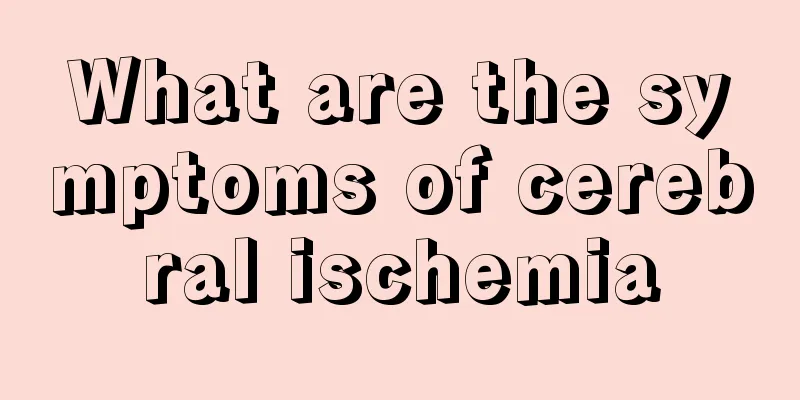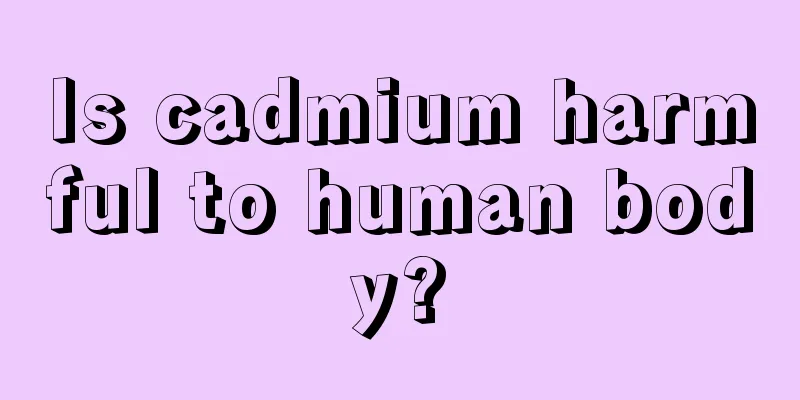What are the symptoms of cerebral ischemia

|
Cerebral ischemia is a relatively common acute cerebrovascular disease, commonly known as "mini-stroke". Generally, patients will suddenly become ill, and if treated promptly, they can recover within 24 hours. However, the disease will recur, often putting patients and their families in a tense atmosphere, and placing a heavy burden on both patients and their families. Symptoms of cerebral ischemia include the following: 1. Acute cerebral ischemia Sudden, transient, focal neurological deficits that resolve within 24 hours without sequelae; The main symptoms of focal neurological deficits are: (1) Hemiplegia, hemiplegia, decreased sensation, visual impairment, and bulbar palsy; (2) Dizziness, headache, tinnitus, black spots in front of the eyes, facial numbness, weakness in the limbs, coughing when drinking water, and slurred speech. Many of the above symptoms may last for a few minutes or hours before completely returning to normal. In a few patients, they may last for more than ten hours, but all return to normal within 24 hours. 2. Recurrent cerebral ischemia symptoms Repeated attacks of dizziness, heaviness, headache, irritability, tinnitus, Insomnia, dreaminess, memory loss, lack of concentration, forgetfulness (such as not being able to remember recent events), etc. Situation occurs. 3. The age of onset is mostly over 50 years old, with a history of heart disease and atherosclerosis. Transient ischemic attack, abbreviated as TIA, is also called transient ischemic attack or mini-stroke. It refers to brain dysfunction caused by a decrease in cerebral blood flow in a short period of time. Each attack lasts for a short time, usually a few seconds, minutes or hours, and no longer than 24 hours. It is often overlooked because the symptoms come and go quickly, and leave no sequelae after recovery. In fact, although the symptoms of TIA are mild, the consequences are serious. If not treated in time, according to statistics, about 25% to 40% of patients will suffer from severe cerebral infarction within 5 years, threatening the patient's life. Therefore, medical scientists often regard it as a precursor or danger signal of cerebrovascular disease. |
<<: Three-minute tips to relieve headaches
>>: What are the symptoms of Helicobacter pylori gastritis
Recommend
Is prostate cancer really hereditary?
Prostate cancer is a common male disease. Patient...
Erythromycin ointment for anal eczema
Anal eczema is a very common disease in daily lif...
How long can hyaluronic acid wrinkle removal last
Many people have many wrinkles on their faces, an...
How do pregnant women massage their breasts?
Ladies, you can spend some time every day to prot...
How should rectal cancer be diagnosed
In recent years, rectal cancer has become one of ...
How many days does it take for the incision to heal after thyroid cancer surgery
The recovery time of the incision after thyroid c...
What are the mosquito repellent items in summer
There are more mosquitoes in the summer, especial...
What is the best time to treat fibroids
What is the best time to treat fibroids? Nowadays...
What is the survival rate of poorly differentiated hepatocellular carcinoma? It is related to many factors
The survival rate of poorly differentiated hepato...
The pain around the big toe nail turns out to be caused by this
In daily life, many people experience pain around...
Which type of condom is the best
Sexual life is something that every adult will ex...
Who are the high-risk groups for liver cancer? The three main reasons for the younger age of liver cancer
The onset of liver cancer is often hidden. Liver ...
Can I take a shower after steaming?
Everyone knows that sweat steaming can detoxify, ...
Young buds of holly?
The young shoots of Hollyhock are actually what w...
The difference between cupping and scraping
Cupping and scraping are two very good ways to he...









